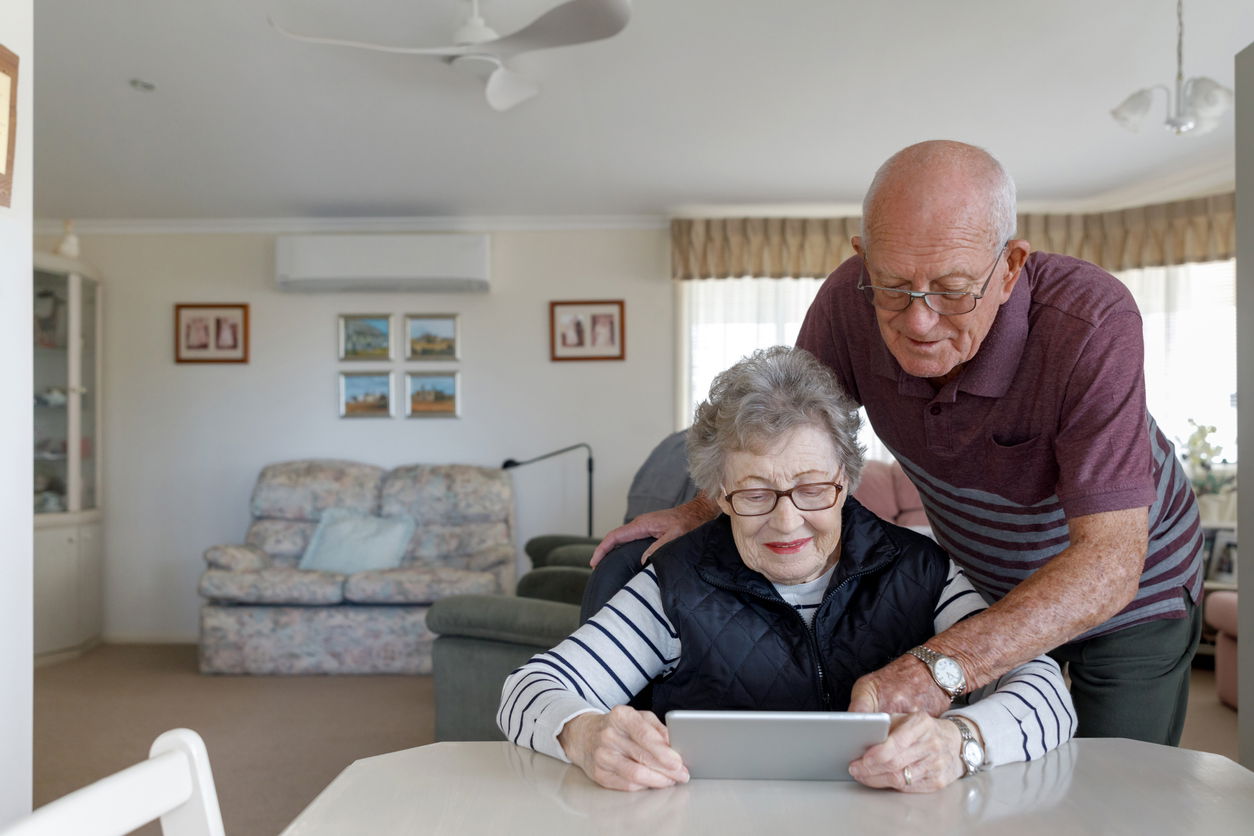Support
How Technology Is Changing Dementia Care at Home
From smart devices to digital memory aids, new tools are helping families create safer, more connected, and more independent environments for individuals experiencing memory loss.
Read more

Written by
Tyler Zanini, Founder at Memoryboard

Caring for a loved one with memory loss, dementia, or Alzheimer's comes with unique challenges, but thanks to recent advancements in technology, providing support at home has never been more manageable, or more empowering. From smart devices to digital memory aids, new tools are helping families create safer, more connected, and more independent environments for individuals experiencing memory loss.
Here’s how technology is transforming dementia care in everyday homes across the country:

Image description
1. Daily Reminders and Scheduling Tools
One of the most helpful categories of technology for dementia care is digital communication and reminder tools. Devices, such as Memoryboard, allow family members and caregivers to share personalized reminders, daily schedules, and encouraging notes, all displayed on a simple screen that’s easy for seniors to read and navigate. These reminders reduce confusion, help maintain routines, and ease the mental load on both loved ones and caregivers.
2. Smart Home Devices
Voice-activated assistants like Amazon Alexa or Google Home can help individuals with memory loss complete simple tasks, like turning on lights, playing music, or checking the weather, without navigating confusing interfaces. These smart tools promote independence while keeping the home environment safe and convenient.
3. GPS and Location Tracking
Wandering is a common concern in dementia care. Wearable GPS devices or smartphone apps can help caregivers monitor a loved one’s location in real time. These tools provide peace of mind and enable faster response in case of disorientation or emergencies.
4. Telehealth and Remote Monitoring
Telehealth platforms and health-monitoring apps allow caregivers to track medications, vital signs, and appointments from a distance. Many apps now let healthcare providers access and update care plans in real time, ensuring that everyone involved in a loved one’s care is on the same page.
5. Digital Communication and Social Connection
Technology is also helping to reduce feelings of isolation. Video calling apps can keep loved ones visually and emotionally connected to family and friends. Tools like Memoryboard go a step further by displaying friendly, familiar messages that help individuals feel connected, even when family can’t be physically present.
6. Cognitive Stimulation Apps
There are also a growing number of apps designed to promote brain engagement and memory retention. From puzzles and matching games to music and storytelling tools, these apps can provide gentle cognitive stimulation tailored to a loved one’s interests and abilities.
Why It Matters
Technology doesn’t replace the human touch, it enhances it. For people living with dementia, simple tech tools can bring clarity, consistency, and comfort. For caregivers, they reduce burnout, improve coordination, and create new ways to stay connected and informed.
Final Thoughts
Technology is transforming dementia care by making support more accessible, routines more reliable, and connections more meaningful. As the tools continue to evolve, one thing remains clear: thoughtful technology, like Memoryboard, has the power to bring peace of mind to families and dignity to those they care for.
Explore how Memoryboard is helping families support memory loss at home, one message at a time.
Stay connected. Join our list for updates, tips, and special offers!
Email address
Sign up
More from the blog
Read more helpful tips about connecting with your loved ones from the team at Memoryboard.
Empower people with memory loss
Memoryboard enhances daily life and strengthens connections



